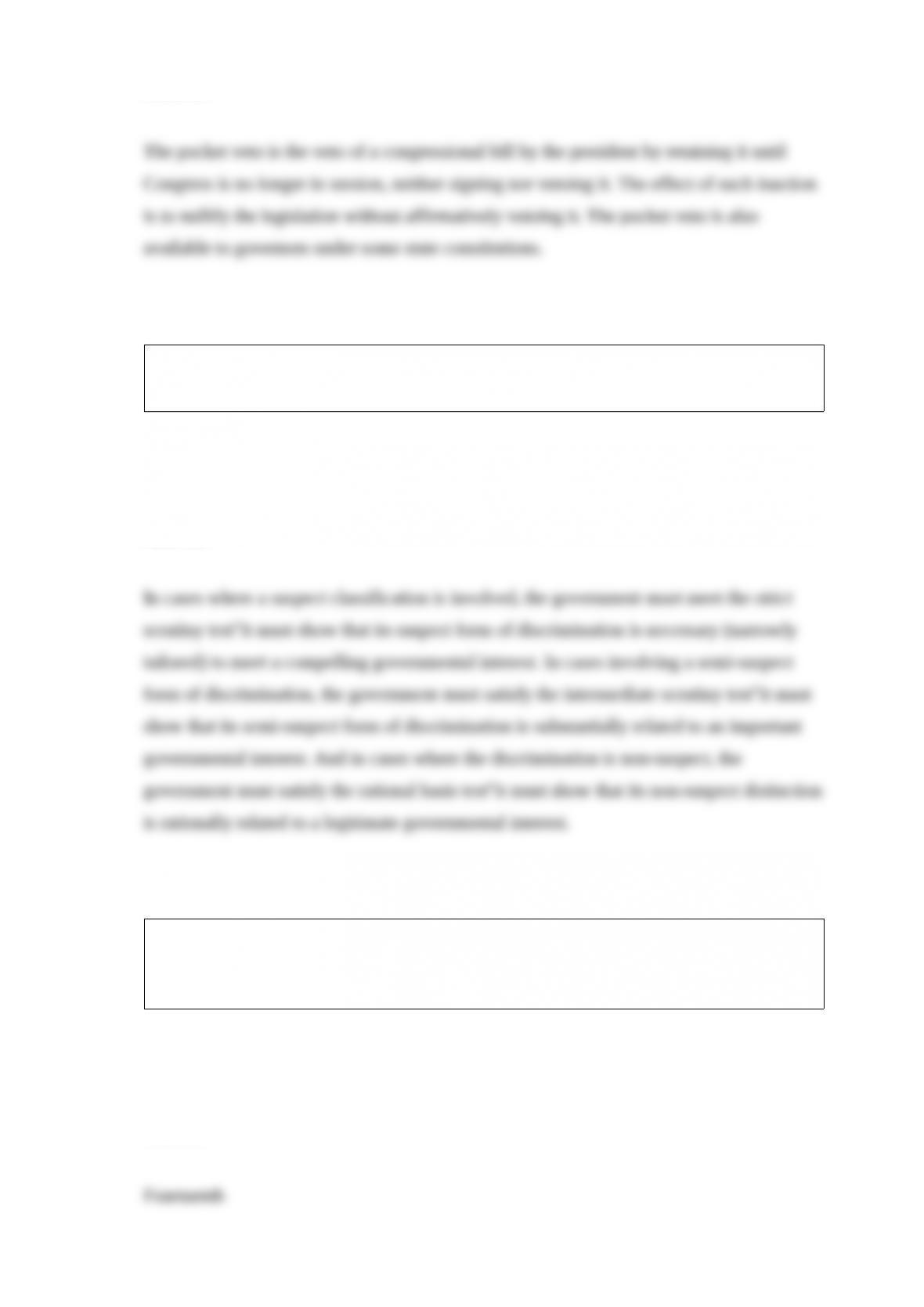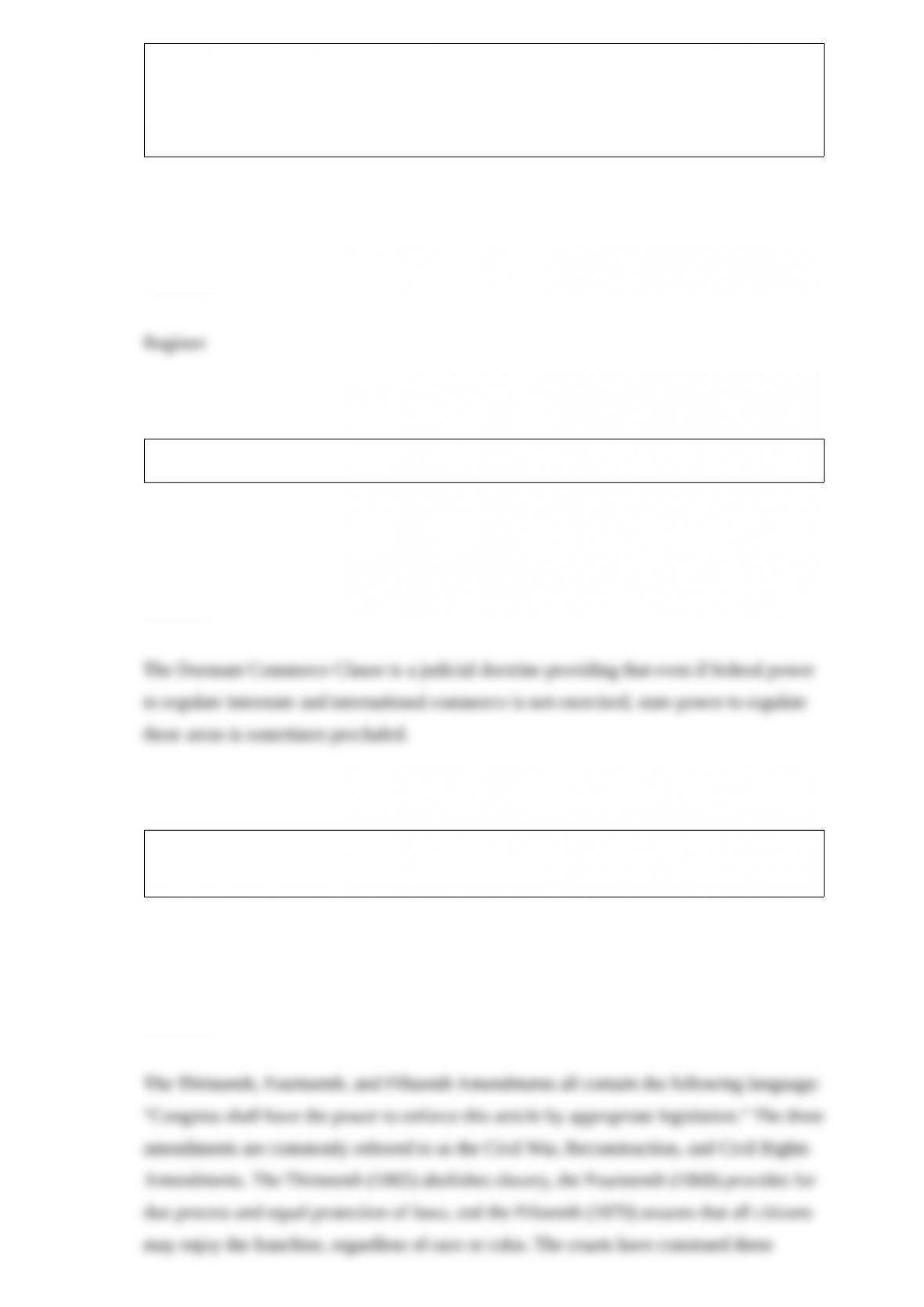2. Necessary and Proper Clause
3. Incorporation
4. Dormant Commerce Clause Doctrine
5. Police Power
6. Preemption Doctrine
7. Commerce Clause
8. Hierarchical Federalism
9. Dual Federalism
10. Intergovernmental Immunity Doctrine
A) the clause in Article I, Section 8, of the Constitution that gives Congress the power
to regulate commerce between the states and between the United States and foreign
countries
B) the power of government to make and enforce laws and regulations necessary to
maintain and enhance the public welfare and to prevent individuals from violating the
rights of others
C) the theory that the national government and the state governments are coequal
sovereigns
D) the idea that state laws that unduly burden interstate commerce, even if the subject is
unregulated by the national government, are invalid under federalism principles,
because the regulation of interstate and foreign commerce belongs exclusively to the
federal government
E) the system by which the states of the United States relate to one another and to the
federal government
F) the doctrine that both the states and the national government possess some immunity
from the regulation of the other under federalism principles
G) the theory that the national government is supreme to the state governments
H) a right applied is applied against the states it is fundamental and necessary to an
ordered liberty
I) Article I of the Constitution grants to Congress the power to make all laws "necessary
and proper" for carrying out its constitutional responsibilities
J) doctrine that state laws that interfere with federal laws are invalid pursuant to the
Supremacy Clause

























































